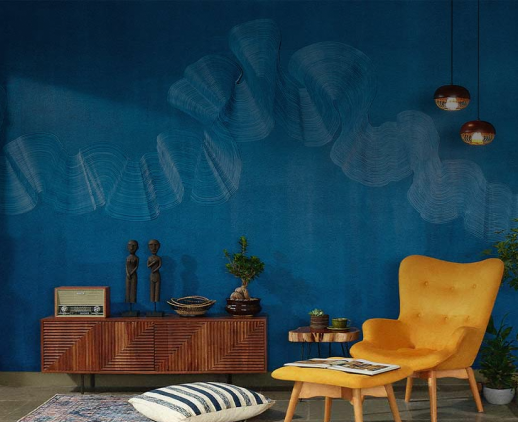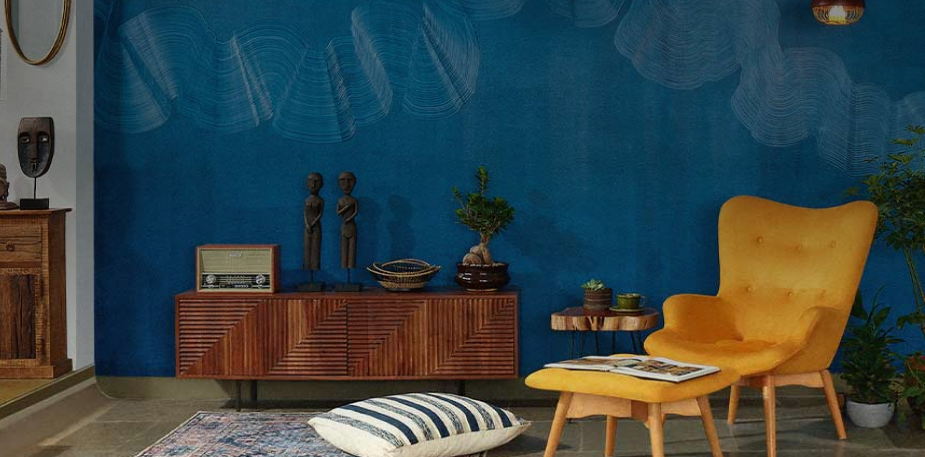Get your home interior design budget estimate
Save the date for New Delhi’s feel-good Diwali shopping tradition

With about 250 stalls, at The Blind Relief Association’s annual Diwali Bazar you can shop for jewellery, lanterns, handloom saris, home décor textiles and products that benefit non-profits, such as those made by Tihar Jail inmates
As each successive Diwali season ratchets up the pressure around gift-giving - a new crop of tacky crystal objets, garish religious idols and designer mithai to be deployed in a game of social one-upmanship, Delhi still has one festive shopping ritual that has remained a classic for about 40 years.
The Blind Relief Association hosts the capital’s most beloved Diwali mela over seven days, in its grounds in the shadow of the Oberoi hotel in central Delhi. People emerge eagerly out of months of living in air-conditioning, discussing whether there’s a nip in the air yet or not, and exchanging commentary on the lamentable rise in pollution levels over chaat and cotton candy from the bazaar’s food stalls.

Visually impaired vocational trainees making paper bags.

Products made by the vocational trainees are still the centrepiece of the fair.
When it started, the Blind School Mela was a small and irregular affair, with just a few stalls showcasing products made by the school’s vocational trainees. With the help of the Blind School’s promoters and patrons (the campus even features in the 1980 film Sparsh, starring Naseeruddin Shah and Shabana Azmi), and thanks to its central location and extensive grounds, the mela grew bigger with each year. The school’s stalls were joined by a growing list of vendors selling everything from planters to palazzos, turning the fair into a regular fixture on the seasonal calendar and the BRA’s major fundraising event for its activities, which besides a school and college, include training in massage therapy, call centre jobs, computer skills and more.
Meeting up at the mela is an annual tradition for many: with about 250 stalls, there’s a wide enough range to appeal to every pocket and aesthetic preference. Products made by the vocational trainees are still the centrepiece of the fair, and they include dozens of varieties of candles; wrapping paper and other stationery and paper items; and sewn products, like purses and bags. Trainees also run massage, storytelling, and craft-making stalls that are welcome oases in the midst of shopping.
Visitors are likely to spot planters from the brand Earthly Creations; jewellery from a mix of independent makers and bigger boutiques; lanterns of every shade and shape; handloom saris and dupattas; designer suits and festive wear; tasteful home décor textiles; quirky gift items by young designers; and products that benefit non-profits, such as those made by Tihar Jail inmates.
More than what’s available at the stalls though, the Blind School Mela offers the kind of festive, feel-good atmosphere that can sometimes feel in short supply around major holidays. Lamplight, laughter and the knowledge that it’s all for a good cause are all fine ways to get into the seasonal spirit.
The Blind School Mela will be held between October 18-24 this year.

Products available at the fair include dozens of varieties of candles; wrapping paper and other stationery and paper items; and sewn products, like purses and bags.

Paper mache plates and cups available at the fair.

Bags made with Braille paper and diaries made from recycled paper are available at the fair.

Get Started with your interior design journey with us!
Speak to our design professionals
What’s the status of your home possession?
What’s the condition of your home/space?
Will you be living in your space during the renovation?
 Previous Question
Previous Question
Is your interior design budget over 4 lakhs?
 Previous Question
Previous Question
Book next available appointment slots with our experts!
Please Select Date and Day
 Previous Question
Previous Question

Something went wrong!
We were unable to receive your details. Please try submitting them again.

Appointment Scheduled!
Thank you for giving an opportunity to Asian Paints Beautiful Homes Service! Our Customer Experience Specialist will get in touch with you soon.
Appointment Date & time
Thank You!
Our team will contact you for further details.
What’s the status of your home possession?
What’s the condition of your home/space?
Will you be living in your space during the renovation ?
 Previous Question
Previous Question
Is your interior design budget over 4 lakhs?
 Previous Question
Previous Question
Book next available appointment slots with our experts!
DEC 2023
Please Select Date and Day
 Previous Question
Previous Question

Something went wrong!
We were unable to receive your details. Please try submitting them again.

Appointment Scheduled!
Thank you for giving an opportunity to Asian Paints Beautiful Homes Service! Our Customer Experience Specialist will get in touch with you soon.
Appointment Date & time
17 Oct 23, 03.00PM - 04.00PM





































